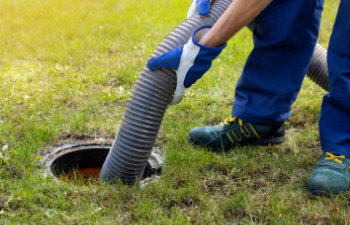
If you live in Cartersville or the surrounding areas of North Georgia, you probably rely on a septic system to manage your household waste. While out of sight and out of mind for most of the year, your septic tank needs routine maintenance to keep your property safe, odor-free, and fully functional.
One of the most important services you can schedule is septic pumping—but did you know when you book it matters just as much as how often? At Metro Septic, we help homeowners time their pumping right so they avoid costly issues and keep everything flowing smoothly.
Why Septic Pumping Matters
Septic tanks are designed to separate and decompose waste, but the solid materials (called sludge) eventually build up and must be removed. Ignoring regular pumping can lead to:
- Drainfield failure
- Sewage backups into your home
- Foul odors in your yard
- Costly system repairs or replacements
According to the U.S. Environmental Protection Agency (EPA), septic systems should be pumped every 3–5 years, depending on the size of the household and tank.
The Best Times to Schedule Septic Pumping in Georgia
1. Early Spring
Before the heavy rains of late spring and summer hit Cartersville, early spring is a smart time to pump your tank. The ground is drying out from winter moisture, but it’s not yet saturated—making it easier and safer for technicians to access your tank.
- Bonus: You’ll avoid the busy summer rush and have peace of mind during backyard BBQ season.
2. Late Summer to Early Fall
This window offers cooler temperatures and stable soil conditions. If your household grows during the summer with guests or kids home from school, your tank may need attention sooner than expected.
- Tip: Book your pumping before fall storms arrive and tree roots become more active (which can invade older septic lines).
3. Before Holiday Gatherings
Planning to host Thanksgiving or Christmas in Cartersville? Extra guests mean extra flushing, dishwashing, and laundry—which can stress your septic system. Scheduling a pre-holiday pump ensures you won’t deal with embarrassing or messy backups during your event.
The Worst Times to Schedule Septic Pumping
1. During Heavy Rain or Flooding
Wet, saturated soil can make it difficult or dangerous to access your tank. In some cases, the ground may even collapse around the excavation area. Pumping a septic system during floods can also cause the tank to float if it’s emptied when groundwater is high.
- Avoid: Scheduling during or immediately after major storms like those common in late spring and summer in North Georgia.
2. Winter Freezes
While Cartersville doesn’t experience long winters, cold snaps can still freeze the ground, making it tough for crews to locate and access your tank. Frozen pipes can also interfere with the pumping process.
- Plan ahead: Don’t wait until winter to schedule your pumping—especially if it’s overdue.
3. When You’re Already Experiencing Backups
By the time sewage is backing up into your sinks or showers, the issue might be more than just full sludge. Your system could have a clog, root intrusion, or drainfield failure. Emergency pumping is more expensive and may not fix the root problem.
How to Know It’s Time to Pump
Not sure when you last had your septic tank pumped? Watch for these signs:
- Slow drains throughout the house
- Gurgling noises in pipes when flushing
- Odors near your yard or tank area
- Pooling water or unusually green grass above your drainfield
- Sewage backup in toilets, sinks, or tubs
If any of these sound familiar, it’s time to call the professionals.
Why Cartersville Homeowners Trust Metro Septic
As one of the top septic service providers in Bartow County and the surrounding areas, Metro Septic delivers timely, reliable service year-round. Our team has the tools and experience to:
- Locate and access your tank even in difficult terrain
- Use environmentally responsible pumping and disposal practices
- Recommend a customized maintenance schedule based on your household’s needs
- Perform inspections and provide documentation for real estate or home sales
We serve both residential and commercial properties in Cartersville, Emerson, White, Kingston, and beyond.
Frequently Asked Questions About Septic Pumping
- How often should I pump my septic tank in Georgia? Most households should pump every 3–5 years. If you have a smaller tank or a larger family, more frequent service may be necessary.
- Does the time of year really matter? Yes! Weather, soil saturation, and technician availability all impact how safe and efficient the job will be.
- What happens if I wait too long to pump? Over time, solid waste can overflow into your drainfield, leading to irreversible damage and expensive repairs—or full system replacement.
- Can I pump my septic tank myself? No. Septic pumping requires specialized equipment, safety gear, and proper disposal licensing per Georgia state law.
- Is pumping the same as a septic inspection? No. Pumping removes waste; inspections look at the system’s condition. However, they can be done together, and we highly recommend both.
Schedule Smart with Metro Septic in Cartersville
Timing is everything when it comes to septic tank pumping. By scheduling your service during the right season—and before problems arise—you can protect your property, save money, and avoid emergencies.
At Metro Septic, we’re proud to offer honest pricing, fast service, and expert advice tailored to Georgia’s climate and soil conditions. Whether you’re due for routine maintenance or seeing warning signs, we’re here to help.
Contact Metro Septic in Cartersville today to schedule your septic tank pumping—and get ahead of the mess.

